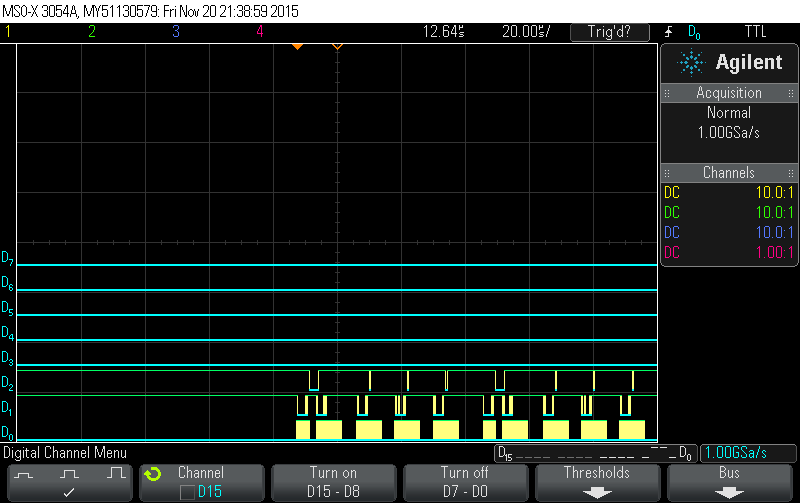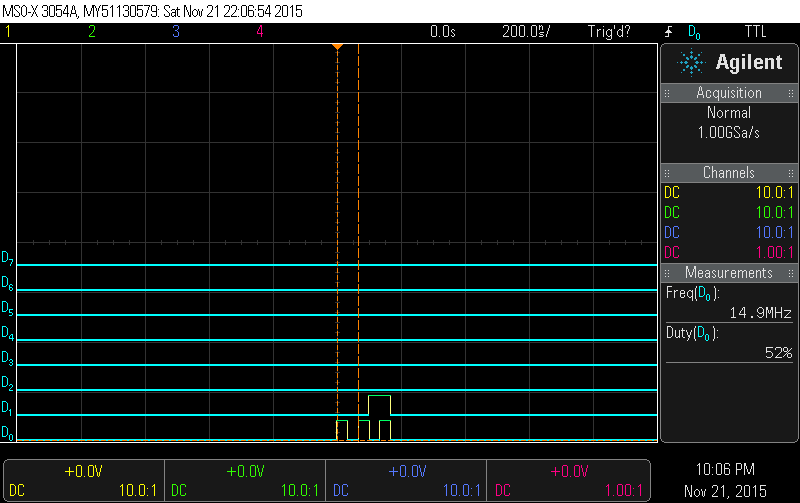With the CC3200 launchpad I'm trying to interface an SD card. I'm using the sdhost_fatfs example project but no luck so far.
processors.wiki.ti.com/.../CC32xx_SDHost_FatFS
Everything compiles and loads without issue, but it never sees the SD card. Within CCS routines always respond as if a card isn't present. I get the error FR_NOT_READY when I run f_mount(). I am using the following SD card board.
http://www.gravitech.us/micaad.html
MISO and MOSI are both pulled up with resistors on a bread board. I'm pretty confident that everything is wired up correctly. MOSI = PIN_08 (P2.3), MISO = PIN_06 (P2.7), CLK = PIN_07 (P2.6), and SELECT = GND. Here is a screen shot from the logic analyzer. D0 = CLK, D1 = MOSI, D2 = MISO. Some kind of response from the SD card is being generated. I have tested with 4GB and 2GB microSD cards.
Anybody have any ideas, some trick I'm missing? I've tried multiple SD cards, multiple SD card breakout boards, and also multiple CC3200 launchpad boards. So I don't think it's an issue with bad hardware.
Thanks



